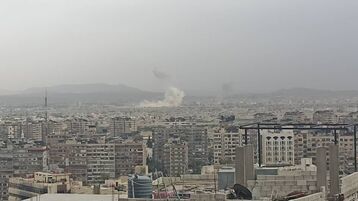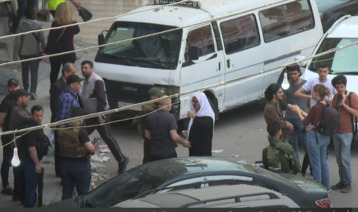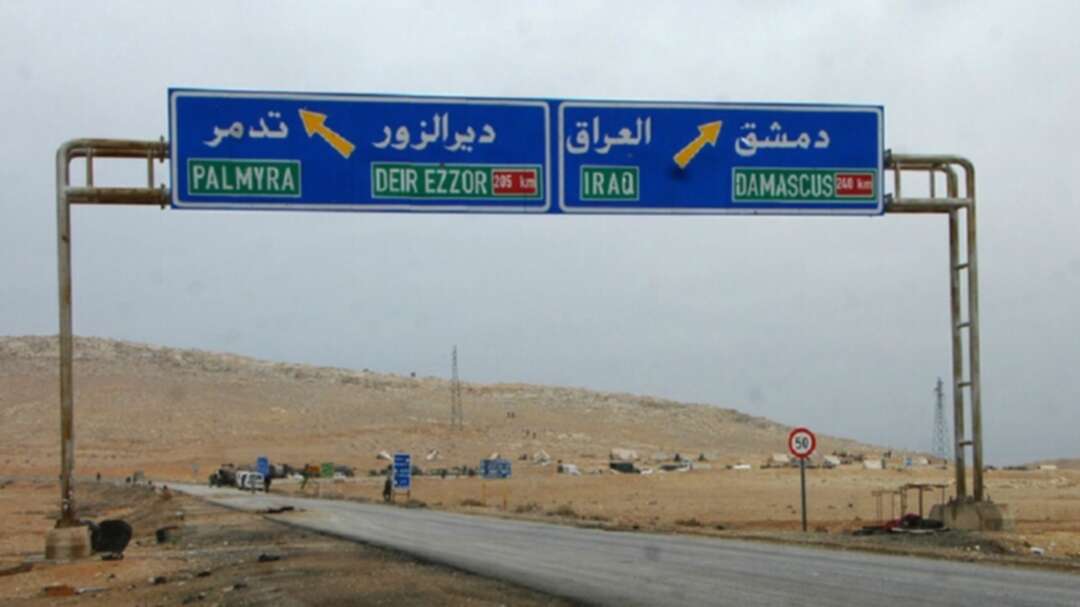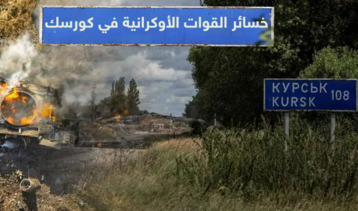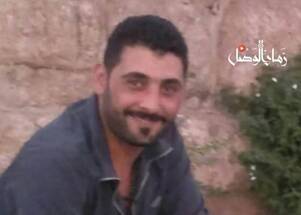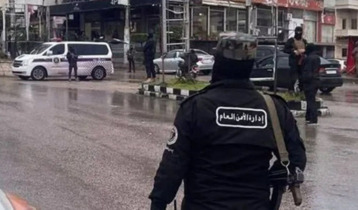-
Trump's shock Syria retreat reverberates as Turkish troops mass
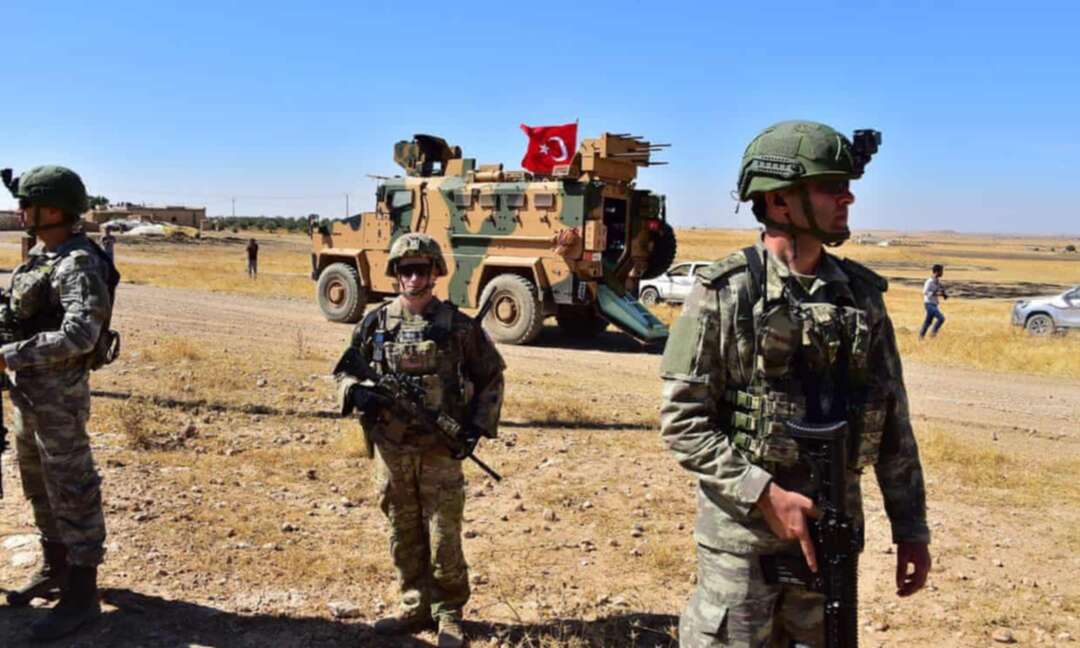
Kurdish forces in Syria have said the fate of tens of thousands of suspected Islamic State fighters and their families is uncertain, after US forces began a sudden withdrawal from the Turkish-Syrian border, leaving their Kurdish allies to face the prospect of a Turkish invasion alone.
The effects of the shock retreat continued to reverberate through the region on Monday as Turkish forces massed near the border with the Kurdish stronghold of north-eastern Syria.The threat of a Turkish offensive marks the end of a US-Turkish arrangement established in August that saw troops from both countries carrying out joint patrols in a ‘safe zone’ along the border keeping Turkish and Kurdish forces apart. That scheme was under strain however, as Turkey wanted to establish military outposts deeper inside Syria and resettle non-Kurdish Syrian refugees in the designated safe zone. Those demands were opposed by the Kurdish-led Syrian Democratic Forces (SDF).
In a phone conversation with Donald Trump on Sunday, the Turkish president, Recep Tayyip Erdoğan, appears to have told the US president he would no longer abide by the joint border arrangement and was preparing to invade.
After the phone call, a White House statement (that showed signs of having been directly dictated by Trump) said: “Turkey will soon be moving forward with its long-planned operation into northern Syria”, adding that US forces were being removed from the area of operations.
The SDF said on Monday its US partners had already begun withdrawing troops from areas along Turkey’s border. Footage aired on the Kurdish news agency Hawar purportedly showed US armoured vehicles evacuating key positions in the border region.
The SDF spokesman, Mustafa Bali, accused the US of leaving the area to “turn into a war zone”, adding that the SDF would “defend north-east Syria at all costs”.
The Turkish defence ministry declared in a Twitter post late on Monday: “All preparations for a possible military operation into northeastern Syria are completed … Establishment of a safe zone is essential to contribute to stability and peace of the region and for Syrians to live in safety.”
After a furious political backlash from US conservatives, in which Trump was accused of betraying the Kurdish fighters who look the lead in defeating Isis, the Trump administration insisted that the US had not endorsed a Turkish offensive.
Advertisement
“It appears that the Turks are intent on some sort of military operation, possibly combined with an effort to resettle refugees,” a senior administration official said. “The president made it very clear publicly and privately that the US does not endorse or support any Turkish operation in northern Syria, or there’ll be no US Armed Forces involvement, or support for any operation that the Turks undertake.”
In a sign of disapproval, the Pentagon ended a two-week old confidence building effort in which US and Turkish air forces collaborated in counter-terrorist operations, and the US also cut Turkey off the flow of intelligence from drone video feeds over Syria.
“That doesn’t mean the Turks can’t fly over Syria. That just means they can’t fly with the US,” said Aaron Stein, the director of the Middle East programme and the Foreign Policy Research Institute. “The DoD
The administration official said that an estimated 50 to 100 US special forces soldiers were being pulled back from the 30km safe zone on the border, but would not be leaving Syria, but redeployed instead to more secure positions inside the country.
“This does not constitute a withdrawal from Syria,” the official said. “We’re talking about a small number of troops that will move to other bases within Syria.”
Advertisement
“The fact that we’re removing them is not a green light,” the official said. He added that Turkey would be held responsible if Isis detainees held by the SDF were able to escape as a result of the Turkish offensive, or if war crimes were committed. He pointed to a tweet on Monday by the president warning of repercussions.
“As I have stated strongly before, and just to reiterate, if Turkey does anything that I, in my great and unmatched wisdom, consider to be off limits, I will totally destroy and obliterate the Economy of Turkey (I’ve done before!),” Trump’s tweet said.
The confusion over US policy has followed a familiar pattern of the Trump presidency in which the president appears to dramatically alter course in an informal conversation with a foreign leader, follow up with a series of tweets, and leave the administration to try to rationalise, downplay or mitigate Trump’s impulses.
As has often been the case, Washington’s European allies – UK, France and Germany – were not given advance notice of Trump’s Sunday night statement, though the administration official insisted that senior US administration officials had been informed.
The background briefings provided by officials appeared to be at odds with what Trump himself has said. The White House statement issued on Sunday night gave no hint that the president disapproved of a Turkish offensive. Furthermore in his later tweets, Trump was adamant that the US troops withdrawn from the border would be brought back to the US, not redeployed inside Syria.
“I held off this fight for almost 3 years, but it is time for us to get out of these ridiculous Endless Wars, many of them tribal, and bring our soldiers home,” the president said.
In his tweets, Trump had appeared unsentimental about the Kurds, noting that they had been paid “massive amounts of money and equipment” in the four year campaign, when they were used as the main US proxy to fight Isis in Syria.
But the issue of Isis foreign fighters, most of them European, has clearly preoccupied the US president.
Both Trump and the Kurdish-led Syrian Democratic Forces (SDF) have repeatedly called on European states to repatriate around 20,000 foreign nationals currently held in north-east Syria for trial and rehabilitation at home.
Trump argued it was up to Turkey and Europe and others, “to watch over the captured Isis fighters and families”.
An SDF spokesman, Amjed Osman, said on Monday it was not clear what would happen to the prisoners. “We repeatedly called for foreign states to take responsibility for their Isis nationals. But there was no response,” he said in a statement.
It is far from clear if Turkey has the capacity – or desire – to take custody of the detainees being held in crowded Kurdish jails and displacement camps, stretching the SDF to its limits and prompting warnings that militants are using the prisons to regroup.
Some 74,000 women and children of the caliphate are held at the infamous Hawl camp, where they are guarded by just 400 SDF soldiers. But the camp, a hotbed of violence and extremist ideology, falls outside the parameters of the 32km-deep safe zone on the Turkish-Syrian border that Erdogan has said his forces would establish.
The administration official briefing the press had claimed, wrongly, that the camps were inside the border zone.
Aid agencies warned that an offensive could displace hundreds of thousands of people, and create a new humanitarian disaster.
Save the Children said that more than 9,000 children from 40 countries were being held in camps and depended on humanitarian aid to survive.
“Reports of imminent military operations and troops already sent to the border are deeply troubling. The international community, including the UK, should take urgent steps to do what’s best for these children and bring them to their home countries before access becomes even more unpredictable,” the group said.
The Guardian understands that the SAS and French special forces present in Rojava would be tasked with securing the camp perimeters if the Kurds withdrew. However, with only several hundred troops between them, their numbers would need to be quickly boosted by regular soldiers to avoid a catastrophic collapse in security.
In Washington, the move was condemned by allies and opponents of the president. House speaker Nancy Pelosi, a Democrat, said the move “poses a dire threat to regional security and stability, and sends a dangerous message to Iran and Russia, as well as our allies, that the United States is no longer a trusted partner”.
Senate Republican leader Mitch McConnell said: “A precipitous withdrawal of US forces from Syria would only benefit Russia, Iran, and the Assad regime. And it would increase the risk that Isis and other terrorist groups regroup.”
Republican Senator Lindsey Graham, a staunch Trump loyalist on most issues, said he would call for Turkey’s suspension from NATO and introduce sanctions against Ankara if the Turks attack Kurdish forces.
“This decision to abandon our Kurdish allies and turn Syria over to Russia, Iran, & Turkey will put every radical Islamist on steroids. Shot in the arm to the bad guys. Devastating for the good guys,” Graham wrote in a tweet.
During the campaign against Isis, the SDF did the bulk of the ground fighting to defeat Isis in Syria, losing 11,000 troops in the grinding battle. The senior ranks of the organisation are dominated by members of the Kurdistan Workers’ Party (PKK), which has fought a four-decade guerilla war against the Turkish government.
Ankara has long complained that, while fighting Isis, PKK forces were also waging war in Turkey.
source:theguardian
Tags
You May Also Like
Popular Posts
Caricature
BENEFIT Sponsors BuildHer...
- April 23, 2025
BENEFIT, the Kingdom’s innovator and leading company in Fintech and electronic financial transactions service, has sponsored the BuildHer CityHack 2025 Hackathon, a two-day event spearheaded by the College of Engineering and Technology at the Royal University for Women (RUW).
Aimed at secondary school students, the event brought together a distinguished group of academic professionals and technology experts to mentor and inspire young participants.
More than 100 high school students from across the Kingdom of Bahrain took part in the hackathon, which featured an intensive programme of training workshops and hands-on sessions. These activities were tailored to enhance participants’ critical thinking, collaborative problem-solving, and team-building capabilities, while also encouraging the development of practical and sustainable solutions to contemporary challenges using modern technological tools.
BENEFIT’s Chief Executive Mr. Abdulwahed AlJanahi, commented: “Our support for this educational hackathon reflects our long-term strategic vision to nurture the talents of emerging national youth and empower the next generation of accomplished female leaders in technology. By fostering creativity and innovation, we aim to contribute meaningfully to Bahrain’s comprehensive development goals and align with the aspirations outlined in the Kingdom’s Vision 2030—an ambition in which BENEFIT plays a central role.”
Professor Riyadh Yousif Hamzah, President of the Royal University for Women, commented: “This initiative reflects our commitment to advancing women in STEM fields. We're cultivating a generation of creative, solution-driven female leaders who will drive national development. Our partnership with BENEFIT exemplifies the powerful synergy between academia and private sector in supporting educational innovation.”
Hanan Abdulla Hasan, Senior Manager, PR & Communication at BENEFIT, said: “We are honoured to collaborate with RUW in supporting this remarkable technology-focused event. It highlights our commitment to social responsibility, and our ongoing efforts to enhance the digital and innovation capabilities of young Bahraini women and foster their ability to harness technological tools in the service of a smarter, more sustainable future.”
For his part, Dr. Humam ElAgha, Acting Dean of the College of Engineering and Technology at the University, said: “BuildHer CityHack 2025 embodies our hands-on approach to education. By tackling real-world problems through creative thinking and sustainable solutions, we're preparing women to thrive in the knowledge economy – a cornerstone of the University's vision.”
opinion
Report
ads
Newsletter
Subscribe to our mailing list to get the new updates!

